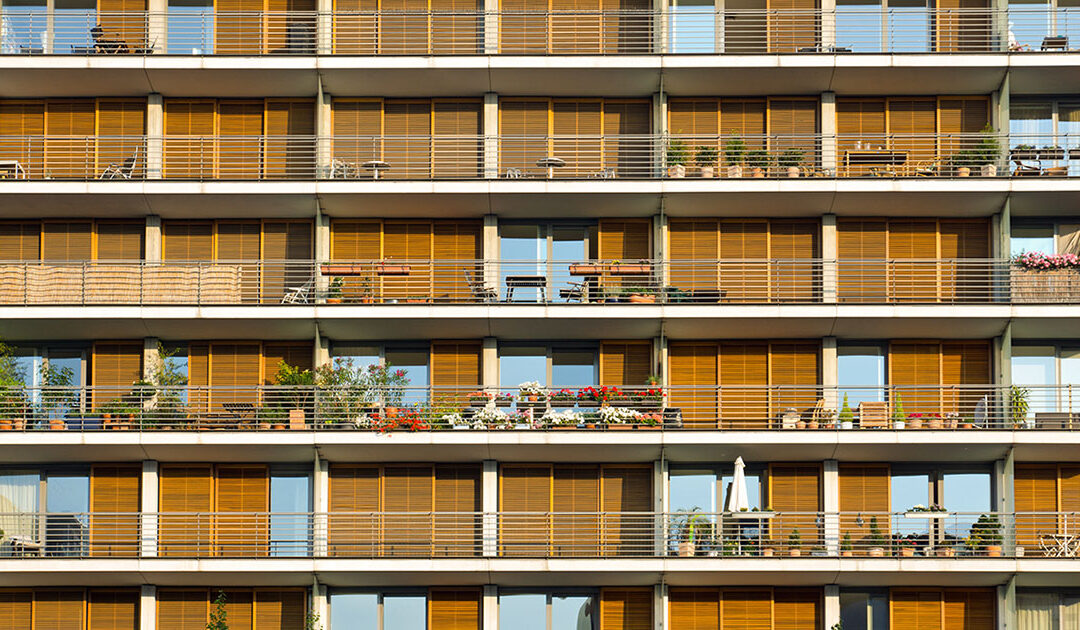If you live in a strata development, you should be paying regular strata levies. Failure of the body corporate to collect strata fees may be a warning sign that the management of your property is in jeopardy.

The payment of strata levies is integral to the ongoing maintenance, preservation and protection of your strata property.
This article explains the role of the body corporate, the purpose of strata levies and some of the implications arising from a tardy or ineffective strata management body.
The strata scheme and body corporate
A strata scheme is property divided into lots (units) and common property. Strata schemes may range from simple ground level units to large high-rise developments with a mix of retail and residential space.
A strata lot comprises the cubic airspace and internal surfaces of the walls, ceilings and floor – essentially the inside of a unit or apartment which is owned exclusively by the property owner.
The remaining development – external walls, stairways, lifts, corridors, community gardens, swimming pools and lobbies – is the common property. The use and responsibility for the common property is shared with the other lot owners.
When a person becomes the owner of a strata unit, they automatically become a member of the owners’ corporation (or body corporate) which is collectively responsible for managing the strata scheme.
These management functions include the practical, financial and administrative aspects of maintaining the common property and related matters such as setting budgets, arranging insurance, repairs and maintenance and record keeping. This function is often performed by an executive committee elected by the owners’ corporation and may also entail the appointment of a management agent or building manager.
The administrative and capital works fund
The owners’ corporation will generally establish two funds – an administrative fund used for regular outgoings and a capital works fund for future capital works, repairs or significant maintenance items.
The administrative fund pays for ongoing costs such as building and public liability insurances, utilities (electricity, water and council rates for common areas), caretaker and management fees and general maintenance of the common property.
The capital works fund is used for capital expenditure such as substantial repairs and maintenance and refurbishment. It may also provide for contingencies or unforeseen costs such as fixing damage or items essential to maintain occupational health and safety standards or fire protection. If the capital works fund is deficient, the owners’ corporation will call for contributions from the lot owners by way of special levies.
These funds are essential to the ongoing management, protection and maintenance of the strata complex.
Calculation and payment of levies
Generally, levies are proposed by the owners’ corporation (sometimes with assistance of a strata manager) after preparation of a budget and presented at the Annual General Meeting.
The budget should anticipate future costs in consideration of previous assessments, the age and condition of the building, the amenities (swimming pools, gymnasiums, lifts) and any funds already retained in each fund. Budgets should take into account contingencies for both expected and unexpected costs.
Each lot owner contributes to the funds through levies which are calculated in accordance with the unit entitlement held by the owner.
The collection of strata levies is essential
A fundamental purpose of paying strata levies is to safeguard and maintain the value of your lot property and your interest in the common property.
Insurance for unforeseen events (fire, storm damage, liability) is integral to protecting these interests. Ongoing maintenance of the common property preserves the overall value of the complex, having a flow-on effect to the value of your individual unit.
Additional funds should also be available for the future maintenance and improvement of common property for the benefit of all lot owners and to ensure that major building issues can be dealt with expeditiously to avoid more significant problems down the track.
Unlike owning a single dwelling, for which you have control over things such as insurance, painting and repairing, the protection and upkeep of a strata lot and the common property is a collaborative effort of the body corporate.
The failure to collect levies is a dire warning that things may have gone amiss in the management of your property.
Effective body corporates
An effectively managed body corporate will generally:
- hold regular Annual General Meetings, send out appropriate notices and generally communicate with lot owners regarding important issues;
- set realistic budgets based on past expenditure and anticipated future expenditure and present these at the Annual General Meeting;
- attend to repairs and maintenance issues as they arise to mitigate further loss and address safety hazards early to minimise exposure to liability to lot owners and / or the body corporate;
- be informed of and adhere to the relevant strata legislation and regulations;
- pay contractors and service providers promptly;
- engage, where necessary, the assistance of a professional such as a strata manager or Strata Lawyer.
Summary
The above is not a definitive list for sound strata management – the best way of ensuring your investment is protected is to have a strong committee which, if necessary, works collaboratively with a professional management company. Strata owners should involve themselves with the body corporate, attend meetings and speak to other lot owners.
The mismanagement of a strata scheme can have a detrimental impact on the value of your strata property. If, after making enquiries and discussing your concerns with the body corporate and / or strata manager you find you are getting nowhere, you should seek advice from an experienced Strata Lawyer.
[ls_content_block id=”1897″]

